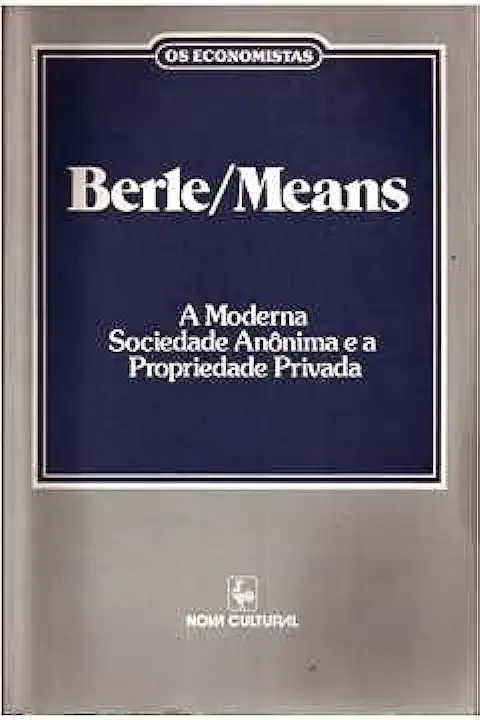
The Modern Corporation and Private Property - Berle / Means
The Modern Corporation and Private Property: A Radical Rethink of Capitalism
In their groundbreaking book, "The Modern Corporation and Private Property," Adolf Berle and Gardiner Means argue that the traditional notion of private property is no longer tenable in the modern economy. They contend that the rise of the large corporation has fundamentally altered the relationship between ownership and control, and that this has profound implications for our understanding of capitalism and democracy.
The Separation of Ownership and Control
One of the most important insights of Berle and Means is that, in the modern corporation, ownership and control are increasingly separated. This is due to the fact that corporations are owned by a large number of shareholders, who typically have little say in how the company is run. Instead, control of the corporation is concentrated in the hands of a small group of managers, who are often not even shareholders.
This separation of ownership and control has a number of important consequences. First, it means that managers have a great deal of power over the corporation's resources, even though they do not own the company. This can lead to conflicts of interest between managers and shareholders, as managers may use the company's resources to pursue their own interests rather than the interests of the shareholders.
Second, the separation of ownership and control makes it difficult for shareholders to hold managers accountable for their actions. This is because shareholders are often not aware of what the managers are doing, and even when they are, they may not have the power to remove them from office.
The Implications for Capitalism and Democracy
The separation of ownership and control has profound implications for capitalism and democracy. In a capitalist economy, it is assumed that the owners of capital will use their resources to maximize profits. However, when ownership and control are separated, this assumption no longer holds. Managers may use the company's resources to pursue their own interests, even if it means sacrificing profits.
This can lead to a number of problems, including:
- Economic inefficiency: Managers may make decisions that are not in the best interests of the company, leading to wasted resources and lower profits.
- Social inequality: Managers may use their power to enrich themselves at the expense of workers and other stakeholders.
- Political corruption: Managers may use their wealth and power to influence government officials, leading to policies that benefit the wealthy at the expense of the poor.
The separation of ownership and control also has implications for democracy. In a democracy, it is assumed that the people who own the country's resources will have a say in how the country is run. However, when ownership and control are separated, this assumption no longer holds. The people who own the country's resources may not have any say in how the country is run, while the people who control the country's resources may not be accountable to the people.
This can lead to a number of problems, including:
- Plutocracy: A government in which the wealthy have a disproportionate amount of power.
- Oligarchy: A government in which a small group of people have a disproportionate amount of power.
- Authoritarianism: A government in which a single person has a disproportionate amount of power.
The Need for Reform
Berle and Means argue that the separation of ownership and control is a fundamental flaw in the modern corporation. They contend that this flaw leads to a number of problems, including economic inefficiency, social inequality, political corruption, and plutocracy.
They propose a number of reforms to address this problem, including:
- Increased shareholder democracy: Shareholders should have more say in how the company is run.
- Worker representation on corporate boards: Workers should have a say in how the company is run.
- Government regulation of corporations: The government should regulate corporations to protect the interests of shareholders, workers, and other stakeholders.
These reforms would help to ensure that the modern corporation is used for the benefit of all, not just the wealthy few.
Conclusion
"The Modern Corporation and Private Property" is a must-read for anyone who wants to understand the modern economy. Berle and Means' analysis of the separation of ownership and control is a powerful indictment of the modern corporation, and their proposals for reform are essential reading for anyone who wants to create a more just and equitable economy.
Enjoyed the summary? Discover all the details and take your reading to the next level — [click here to view the book on Amazon!]